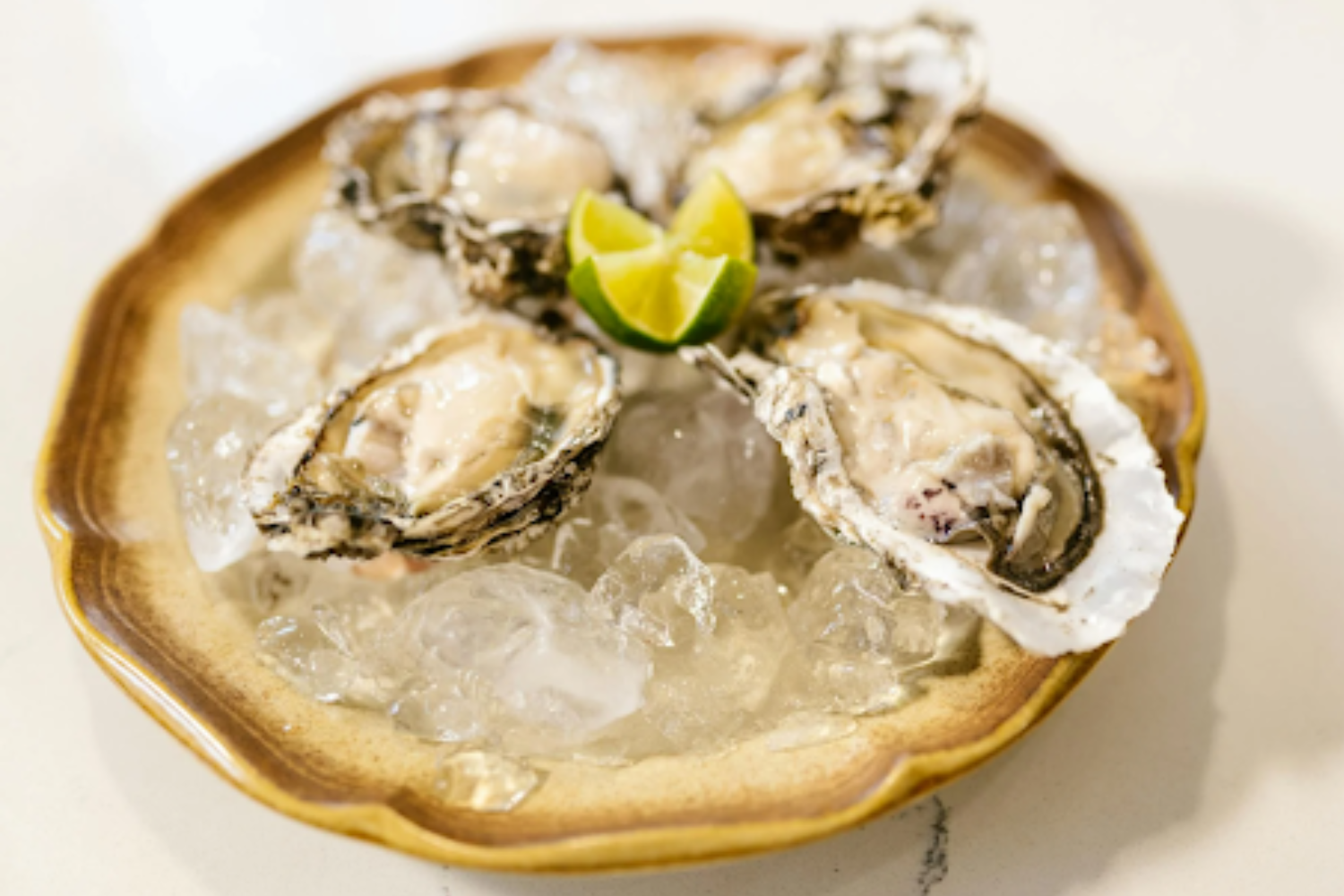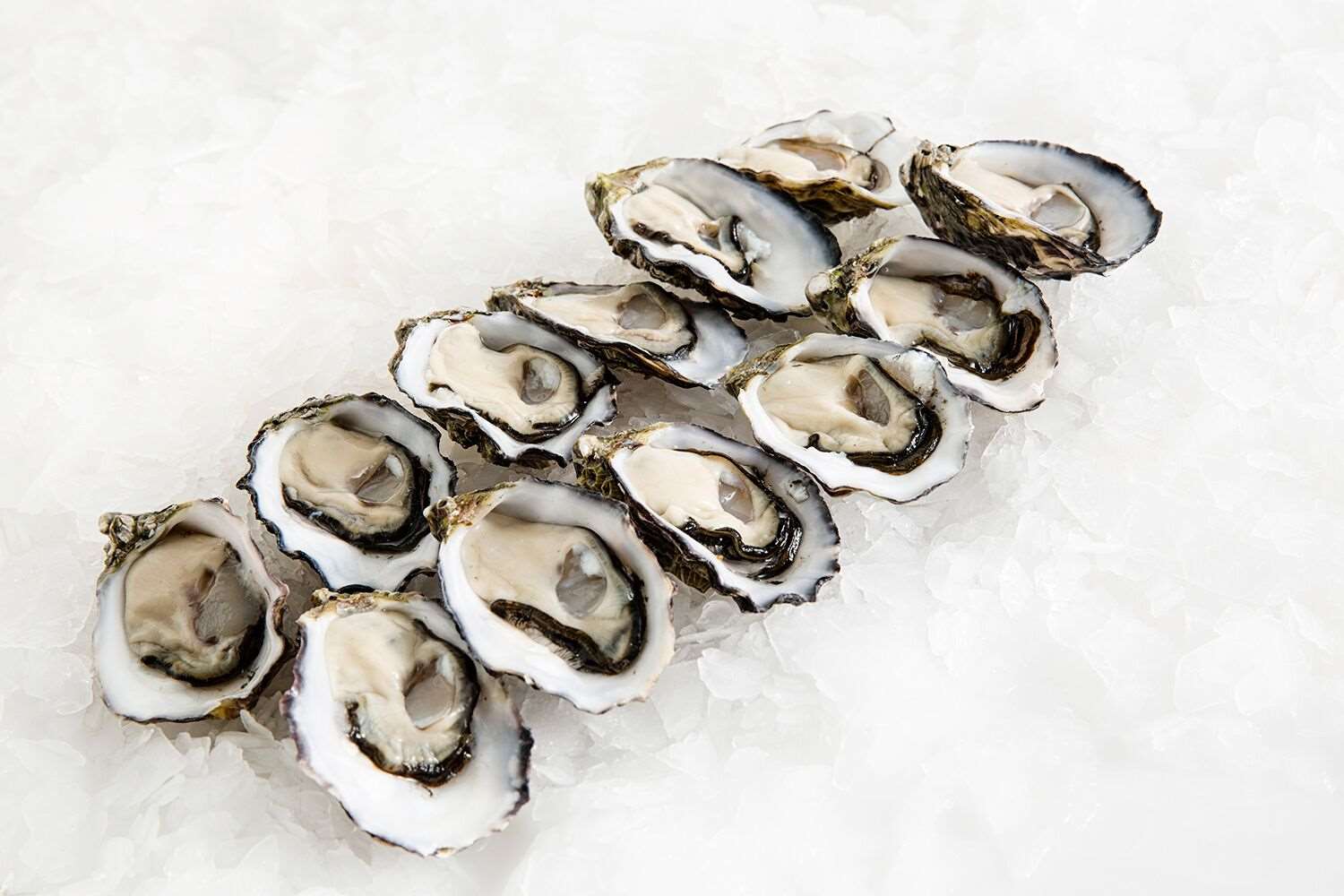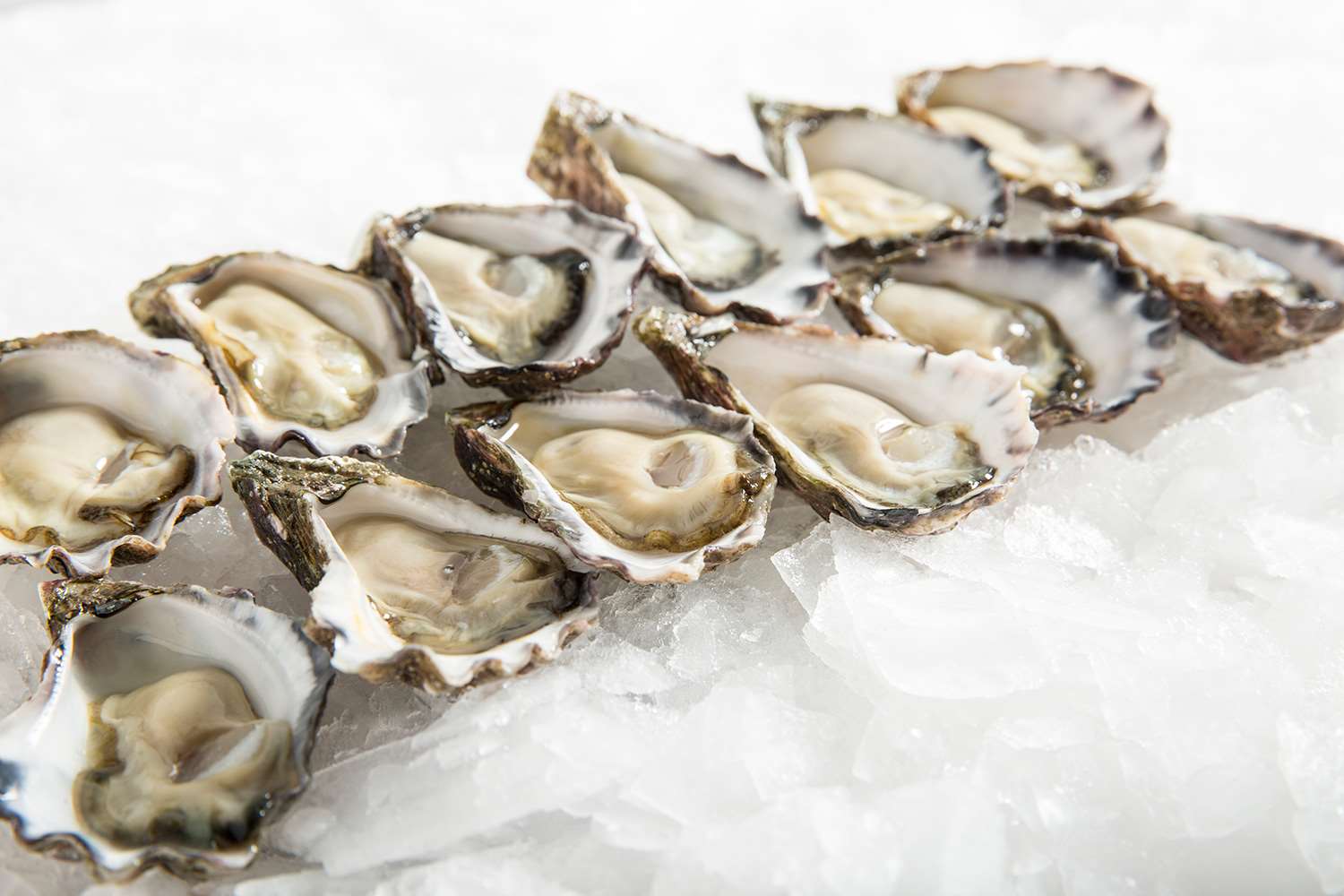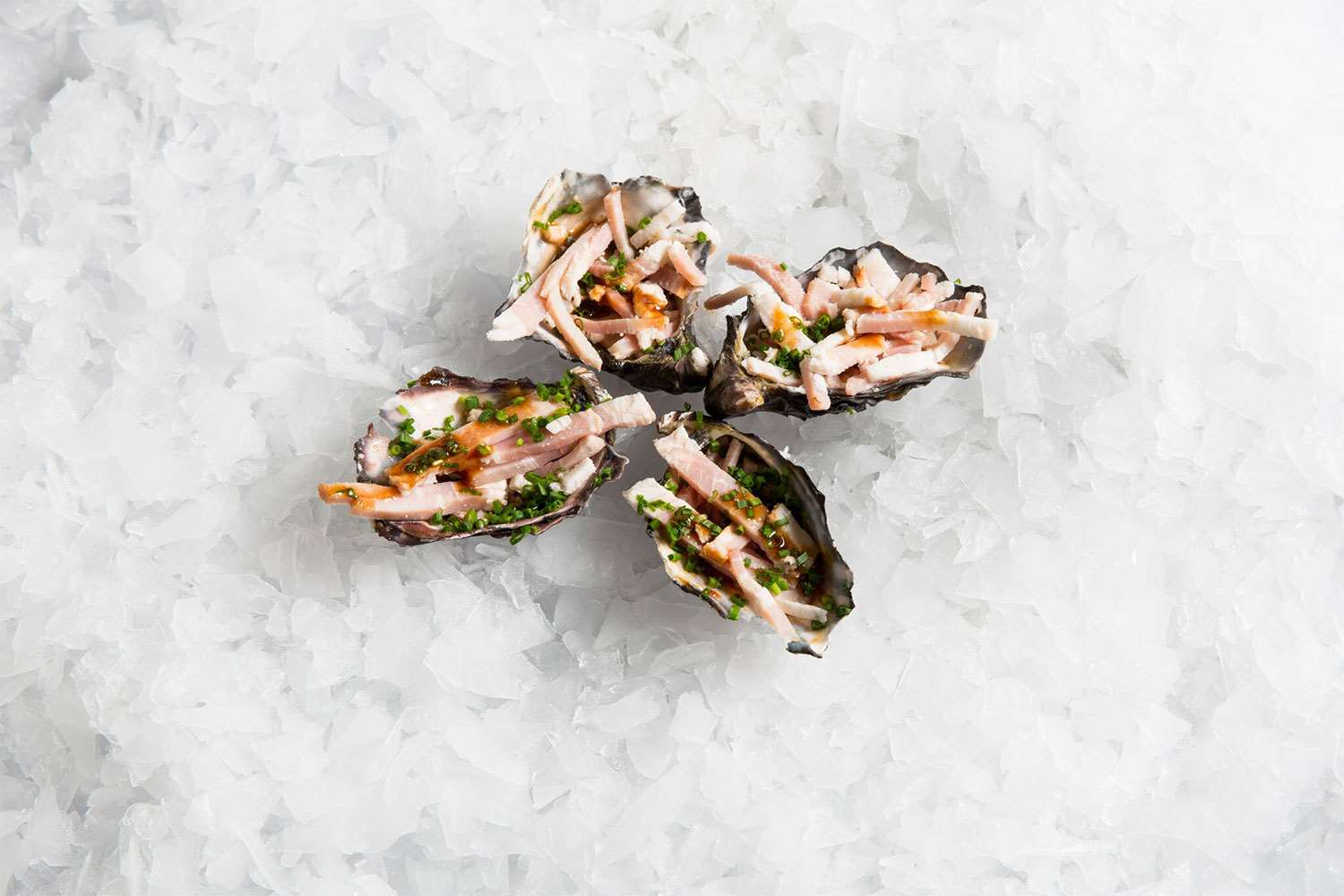

EASTER ORDERS ARE CLOSED!
Wishing everyone a Happy Easter



Did you know that unassuming little oysters have a surprising secret? These fascinating bivalve molluscs are sequential hermaphrodites, meaning they can switch genders throughout their lives! While this fact might be a conversation starter at your next dinner party, oysters offer much more than a quirky talking point.
Prized as a delicacy for centuries, oysters boast a rich history dating back to ancient civilisations. They were enjoyed by the Romans, revered by the French court of King Louis XIV, and continue to be a popular menu item in fine dining establishments worldwide.
But beyond their delicious flavour, oysters offer various health benefits. In this blog post, we’ll dive deep (pun intended!) into the impressive nutritional value of oysters and explore how these little morsels from the sea can give your health a delightful boost.
Our bodies rely on essential nutrients called macronutrients for a variety of functions. Like the bricks and mortar that make up a house, macronutrients provide the building blocks for energy, cell growth, and overall well being. There are three main types of macronutrients: protein, carbohydrates, and fats. Each plays a crucial role in keeping us healthy.
Despite their unassuming size, raw oysters are surprisingly packed with these vital macronutrients. They’re an excellent source of high-quality protein, containing all nine essential amino acids your body can’t produce alone. This protein is essential for building and repairing tissues, keeping you feeling strong, and supporting a healthy metabolism. While oysters are lower in carbohydrates, they contain a small amount of complex carbs that provide a slow and steady stream of energy.
However, perhaps the most surprising aspect of oyster nutrition is its content of healthy fats. Oysters are rich in omega-3 fatty acids, a fat lauded for its heart-healthy properties. These fats help reduce inflammation, lower blood pressure, and promote cardiovascular health.

While macronutrients provide the foundation for our health, micronutrients, often called vitamins and minerals, are the essential vitamins and minerals that act like the skilled craftspeople who take those building blocks and turn them into a functioning structure. These tiny powerhouses play a key role in many bodily functions, from regulating hormones to supporting the immune system.
Let’s take a closer look at some of the heavy hitters found in a serving of oysters:
With such an impressive variety of vitamins and minerals packed into each bite, it’s no wonder oysters have been prized for their health benefits for centuries.

In today’s world, heart disease remains a leading cause of health concerns. The good news is that incorporating certain foods into your diet can significantly reduce your risk and promote overall cardiovascular health. Oysters, with their unique nutritional profile, emerge as surprising champions for your heart.
One of the key ways oysters contribute to heart health is by helping to manage cholesterol levels. They are naturally low in fat and cholesterol themselves, but more importantly, they contain omega-3 fatty acids. As mentioned earlier, these essential fats boast anti-inflammatory properties and have been shown to lower LDL or “bad” cholesterol levels. At the same time, oysters may help to raise HDL, or “good” cholesterol, which helps remove LDL cholesterol from the bloodstream. This positive influence on your cholesterol profile can significantly reduce your heart disease and stroke risk.
Keeping your immune system functioning optimally is crucial for maintaining overall health and preventing illness. With their impressive zinc content, oysters are a superfood for your immune system. Zinc plays a vital role in numerous immune system functions, including producing white blood cells, which are the foot soldiers of your immune response. Studies have shown that a zinc deficiency can weaken the immune system and make you more susceptible to illness. The good news is that just a few oysters can provide you with more than your daily recommended zinc intake, giving your immune system a powerful boost.
Other vitamins and minerals found in oysters, such as vitamin C, vitamin D, and selenium, also contribute to a healthy immune system by supporting cell function and communication within the immune response, making oysters an ally in your fight to stay healthy.
Just like the strong shell protects the delicate oyster meat, maintaining strong bones is important for our health. Our bones provide structure and support, allowing us to move freely and stay active. As we age, bone density can naturally decrease, increasing the risk of fractures.
Oysters come to the rescue once again, offering a natural source of minerals essential for bone health. They are rich in calcium, the primary mineral component of bone, and copper and zinc. These minerals work together to promote bone formation and density, helping to keep your bones strong and resilient as you age. So, next time you’re looking for ways to support your bone health, consider adding a serving of oysters to your plate.
The adage “you are what you eat” rings especially true regarding brain health. The foods we choose can significantly impact our cognitive function, memory, and mood. With their unique blend of nutrients, oysters offer a delicious way to support your brainpower.
Vitamin B12 and iron are two key players in keeping your brain sharp. Vitamin B12 is essential for producing neurotransmitters, the chemical messengers that allow brain cells to communicate with each other. A deficiency in B12 can lead to fogginess, memory problems, and even depression. Iron is vital in oxygen delivery throughout the body, including the brain. When your brain cells receive enough oxygen, they can function optimally, promoting clear thinking and focus. Luckily, oysters are a rich vitamin B12 and iron source, making them a delicious brain-boosting snack.
The potential health benefits of oysters extend beyond the areas we’ve explored. Some studies suggest that oysters may contribute to improved reproductive health due to their zinc content. Additionally, the anti-inflammatory properties of omega-3 fatty acids in oysters may help reduce inflammation throughout the body, potentially aiding in conditions like arthritis. While more research is needed in these areas, incorporating oysters into your diet is a delicious way to explore their potential for overall well being.

Now that you’re excited to reap the health benefits of oysters, you might be wondering how to choose the freshest ones. Look for oysters with tightly closed shells at the market—a gentle tap should elicit no movement. Fresh oysters should also smell like the sea, not fishy. Different oyster varieties offer unique flavour profiles. Pacific oysters tend to be brinier, while Atlantic oysters are known for their milder, creamier taste. Don’t be afraid to ask your fishmonger for recommendations based on your preferences!
It’s best to eat oysters soon after purchase. Store them unopened in the coldest part of your refrigerator, preferably on a bed of crushed ice. They’ll stay fresh for up to a day or two.
While shucking oysters may seem intimidating at first, it’s a skill you can easily master! You’ll need a sturdy shucking knife and a kitchen towel for protection. Hold the oyster cupped side down and insert the knife tip at the hinge. Twist gently to pry the shell open, then carefully detach the oyster meat. There are plenty of online tutorials to guide you through the process visually.

For the purists, there’s nothing quite like a freshly shucked oyster on the half shell, perhaps with a squeeze of lemon juice and a sprinkle of mignonette, a classic condiment made with shallots and red wine vinegar. Feeling a bit more adventurous? Try a hot sauce or a dab of wasabi for a delightful kick.
If you’re looking for cooked options, the possibilities are endless. Classic Oysters Rockefeller, baked with creamy spinach and Pernod sauce, is a timeless favourite. Grilled oysters are another crowd-pleaser, offering a smoky and slightly caramelised twist on the briny flavour. Oysters can also be incorporated into stews, chowders, or pasta for a luxurious seafood experience.
As we’ve explored, oysters are more than just a delicious appetisers—they’re a true nutritional powerhouse. Packed with essential vitamins, minerals, and healthy fats, oysters offer a wealth of potential health benefits. From supporting a robust immune system and promoting heart health to strengthening bones and boosting brain power, eating oysters is great for your wellbeing.
Feeling inspired to experience the taste of the sea and reap the rewards of oysters? Head down to your local seafood market, like Manettas Seafood Market, where knowledgeable staff can help you choose the perfect oysters and offer recipe suggestions. With their dedication to quality and freshness, Manettas is your one-stop shop for experiencing the joy of oysters! So, what are you waiting for? Dive into the world of oysters and discover a delicious path to a healthier you!